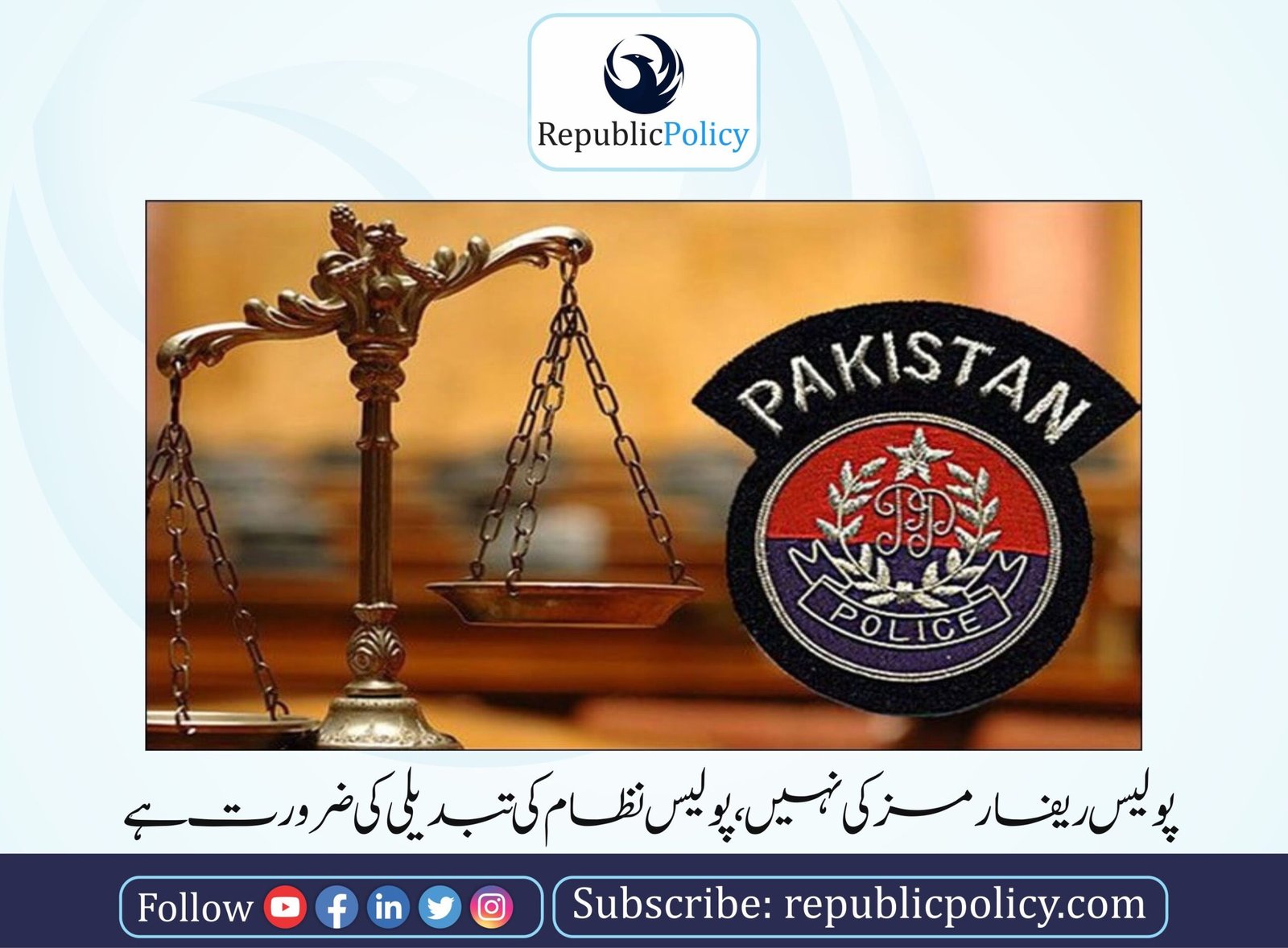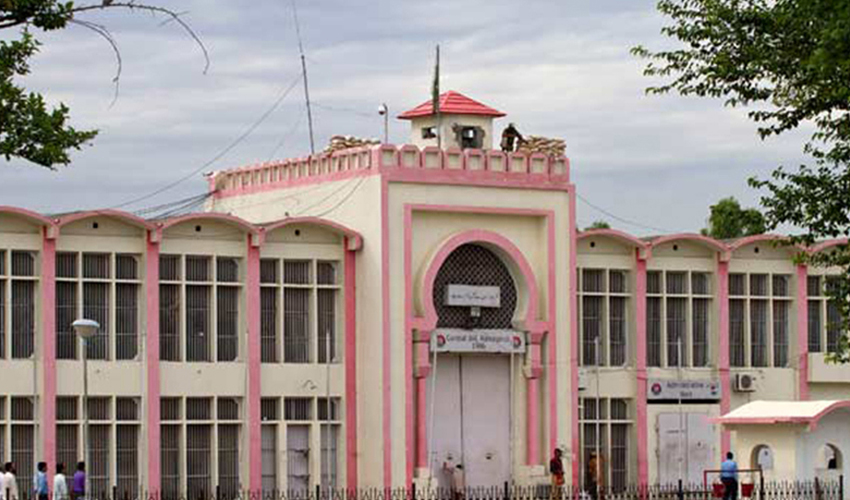Tahir Maqsood Chheena
Policing is a devolved subject around the world among federations. Similarly, Policing in Pakistan has also devolved, especially after the 18th amendment to the constitution of Pakistan. There is a need to understand the relationship between law and order and policing. Law and order is a whole, and policing is part of it. Then, Policing is part of the Provincial Home Departments in Pakistan as per the rules of business of the provincial governments. For example, in Punjab, it is the Home Department of Punjab that is mandated to raise the establishment of Police. The establishment of Police and their functions are entirely different things, and one should be distinct here. The functions might come under the concurrence of Federal and Provincial governments under Article 142 (b), but the establishment of Police is purely a provincial domain under Article 240 (b) and PCS Act 1974. Therefore, the Provincial government will establish the Police service up to the rank of Inspector general from the provincial police officers and officials. However, the article focuses on the functions of policing and how to improve them.
The political functions of implementation of law and order, crime prevention and detection, investigations, security, intelligence collection, and its integral part in the criminal justice system are complex and interrelated topics that require critical analysis. Here is a brief overview of some of the main points:
Implementation of law and order: This refers to the process of enforcing the laws and regulations that are established by the state or other authorities. It involves the use of Police and other agencies to maintain public order and safety, protect the rights and freedoms of citizens, and prevent and respond to crimes and violations. Implementing law and order is a political function because it reflects the values, interests, and goals of the state and its institutions. It also affects the relationship between the state and the society, as well as the balance of power and authority among different actors. Various factors, such as the level of democracy, the rule of law, the human rights situation, the social and economic conditions, the cultural and religious norms, and the security threats, can influence the implementation of law and order.
Crime prevention and detection: This refers to the activities that aim to reduce or eliminate the occurrence or recurrence of crimes or criminal behaviours. It involves the use of various strategies, such as education, awareness, deterrence, intervention, diversion, rehabilitation, and reintegration. Crime prevention and detection is a political function because it affects the well-being and security of individuals and communities, as well as the legitimacy and effectiveness of the state and its institutions. It also involves the allocation of resources and priorities among different sectors and groups. Various factors, such as the nature and extent of crime, the causes and motivations of crime, the characteristics and needs of offenders and victims, the availability and quality of data and evidence, and the cooperation and coordination among different actors, can influence crime prevention and detection.
Investigations: This refers to the process of collecting, analyzing, and presenting information or evidence that is relevant to a crime or a violation. It involves the use of various methods, such as observation, interrogation, surveillance, search, seizure, forensic analysis, etc. Investigations are a political function because they affect the accountability and justice for crimes or violations, as well as the trust and confidence in the state and its institutions. It also involves the protection of the rights and freedoms of suspects, witnesses, informants, etc. Various factors, such as the legal framework and standards, the professional ethics and competence, the organizational culture and structure, the technical capacity and equipment, and the oversight and control mechanisms, can influence investigations.
Please, subscribe to the website of republicpolicy.com
Security: This refers to the condition of being free from harm or danger. It involves the protection of individuals and groups from various threats or risks that may affect their physical or psychological well-being. Security is a political function because it affects the survival and development of individuals and groups, as well as the stability and prosperity of the state and its institutions. It also involves the use of force or coercion to prevent or respond to threats or risks. Security can be influenced by various factors, such as the nature and extent of threats or risks, the perception and assessment of threats or risks, the capacity and willingness to address threats or risks, and the cooperation and coordination among different actors.
Intelligence collection: This refers to the process of obtaining and processing information or knowledge that is relevant to a threat or risk. It involves the use of various sources, such as human, technical, open, etc. Intelligence collection is a political function because it affects the decision-making and action-taking for security purposes, as well as the secrecy and transparency of the state and its institutions. It also involves the ethical and legal issues of collecting, storing, sharing, and using intelligence. Various factors, such as the objectives and priorities of intelligence, the methods and techniques of intelligence, the quality and reliability of intelligence, and the oversight and accountability of intelligence, can influence intelligence collection.
Criminal justice system: This refers to the set of institutions and processes that are responsible for applying the law to those who are accused or convicted of crimes or violations. It involves the stages of arrest, detention, prosecution, trial, sentencing, correction, etc. The criminal justice system has a political function because it affects the fairness and effectiveness of justice delivery, as well as the respect and compliance with human rights standards. It also involves the participation and representation of various actors, such as judges, lawyers, prosecutors, defenders, correctional officers, etc. Various factors, such as the legal framework and principles, the organizational culture and performance, the resource availability and allocation, and the public opinion and perception, can influence the criminal justice system.
Please, subscribe to the monthly magazines of republicpolicy.com
Finally, there is a need to develop human resource standards for police recruitment, training, performance, sustenance and promotion. Firstly, there must be a provincial police service PPS in place as per Article 240 (b) of the constitution of Pakistan. Then, the spirit of administrative federalism must be implemented. Then, the specialization of police is also critical. By reforming the police services, their functions can only be performed effectively.
















